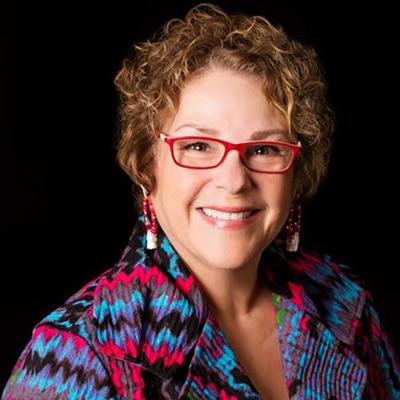Assessment, Intake, and Treatment Goals with Children with Sexual Behavior Problems: Utilizing Play Therapy and other Expressive Approaches

Eliana Gil, Ph.D., RPT-S
Program Goals
The goal of this workshop is to help play therapists and other clinicians identify and address the unique challenges of assessing and treating children with sexual behavior problems. This workshop will provide a range of information including definitions, types of sexual behavior problems, and most importantly, how to differentiate between normative sexual development and sexual behavior problems. The presenter will emphasize the importance of an assessment to both receive and give information to keep children safe in their environment. In addition, a brief child-friendly assessment process utilizing play therapy approaches will be presented so that play therapists learn how to address referral concerns directly with children, and at the same time gauge their willingness to participate with others about these issues. Treatment principles and target goals will be also be presented along with ideas about using expressive therapies to advance treatment goals.
Program Schedule
The schedule will consist of a didactic presentation, group discussions in Zoom breakout rooms, case illustrations, and a Power Point handout.
9:00 – 10:30AM Definition of sexual behavior problems Overview of normative sexual development A comprehensive assessment focused on safety and supervision
10:30 – 10:45 Break
10:45 - 11:30 Working with families and setting a context for treatment
11:30 - 12:00 A play-based, child-friendly approach to assessment Questions and answers
12:00 – 1:15 Lunch
1:15 - 2:45 Treatment principles for working with children and their Families
2:45 – 3:00 Break
3:00 – 4:30 Treatment goals and use of play, art, and sand therapies In treatment
4:30 – 5:15 Questions and Answers and Summary
Course Objectives
By the end of the course participants will be able to:
- Define sexual behavior problems and how play therapists can assist children with sexual behavior problems
- List two criteria play therapists can use for determining non-normative sexual behaviors
- List two intake issues that play therapists must address with parents to set the context for the treatment
- Name two play therapy approaches that can be used to conduct a useful assessment of children with sexual behavior problems
- List a rationale for observing children’s spontaneous play in therapy
- List two reasons why play therapists must focus on parental cooperation
- List two supervision issues relevant to safety for children with sexual behavior problems
- Name two treatment principles that play therapists can use to treat children
- Name two goals that play therapists can promote using play therapy
- Name two specific activities suggested for working with underlying issues of sexual behavior problems
- Describe two benefits of inviting parents to share information with their children of what they learned in treatment, and vice versa
- List two counter-transferential responses that play therapists might encounter working with this population
References:
Kellogg, N. D, (2010). Sexual behaviors in children : Evaluation and Management. J. of American Family Physician, 15,82(10) : 1233-1238.
Letourneau, E. J., Chapman, J. E., & Schoenwald, S. K. (2008). Treatment outcomes and future Offending by youth with sexual behavior problems. J. of Child Maltreatment, 13(2) : 133-144.
Shaw, J. A., Lewis, J. E., Loeb, A., Rosado, J., Rodriguez, R. A. (2000). Child on child sexual Abuse : Psychological Perspectives. J. of Child Abuse and Neglect, 24 :12, 1591-1600.
Silovsky, J. F. (2009). Taking action : Support for families of children with sexual behavior Problems. VT : Safer Society Press.
General Course Information
This course is limited to 20 participants and is designed to facilitate group discussion among play therapists and others regarding state-of-the art literature and practice regarding children’s sexual behavior problems, intake focused on safety and supervision, an assessment that utilizes play therapy activities, and developing goal-oriented and structured play and other expressive therapy interventions.
Clinical case discussions will adhere to HIPPA regulations regarding client confidentiality.
Target audience is Licensed Professional Counselors, MFTs, psychologists, social workers, play therapists and others who work with children.
The program is Beginning Level
This event is sponsored by Starbright Training Institute. Starbright Training Institute is approved by the Association for Play Therapy to offer continuing education specific to play therapy (APT Approved Provider No. 96-029).
Myriam Goldin, LCSW; RPT-S, is Director of Starbright Training Institute. Phone: 703-980-2886. Email: starbright.inst@outlook.com Web Page: starbrighttraininginstitute.com
Complaints and Appeals:
Complaints against an Approved Provider should first be filed in writing with the Approved Provider directly for resolution. If satisfaction is not obtained, APT’s Continuing Education Coordinator should be contacted in writing to achieve a final resolution.
Grievance Policy
Starbright Training Institute seeks to ensure equitable treatment of every person and to make every attempt to resolve grievances in a fair manner. Please submit a written grievance to: Myriam Goldin, LCSW; RPT-S, Director of Starbright Training Institute. Phone: 703-980-2886. Email: starbright.inst@outlook.com Web Page: starbrighttraininginstitute.com
Grievances would receive, to the best of our ability, corrective action in order to prevent further problems.
Accommodations for the Differently Abled
Starbright Training Institute’s training facilities are handicap accessible. Individuals needing special accommodations please contact the Director of Starbright Training Institute. See contact information above.
Course Instructor Contact Information
Name: Eliana Gil, Ph.D.
Website: www.gilinstitute.com
Email: elianagil@me.com
Phone: 202-257-2783